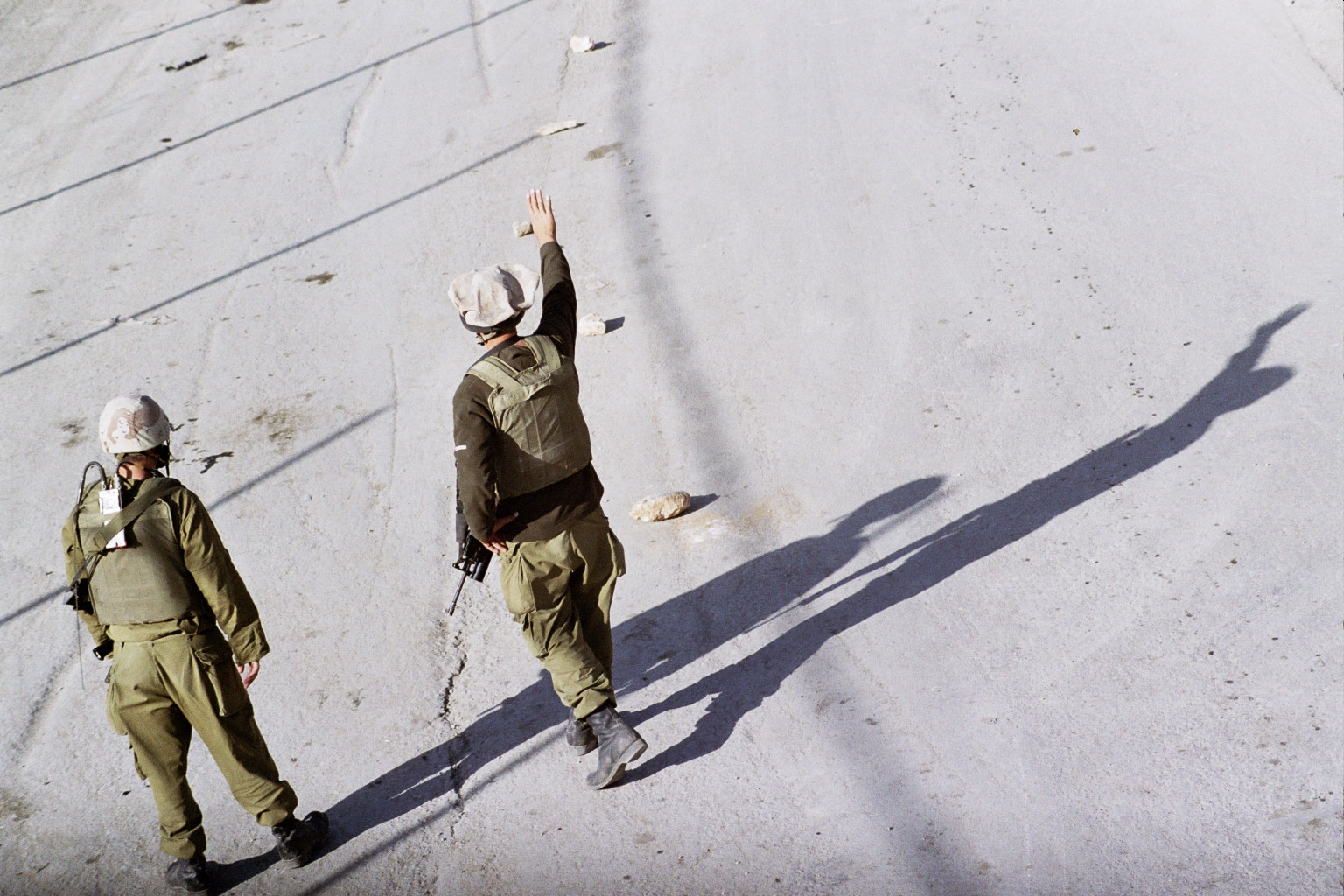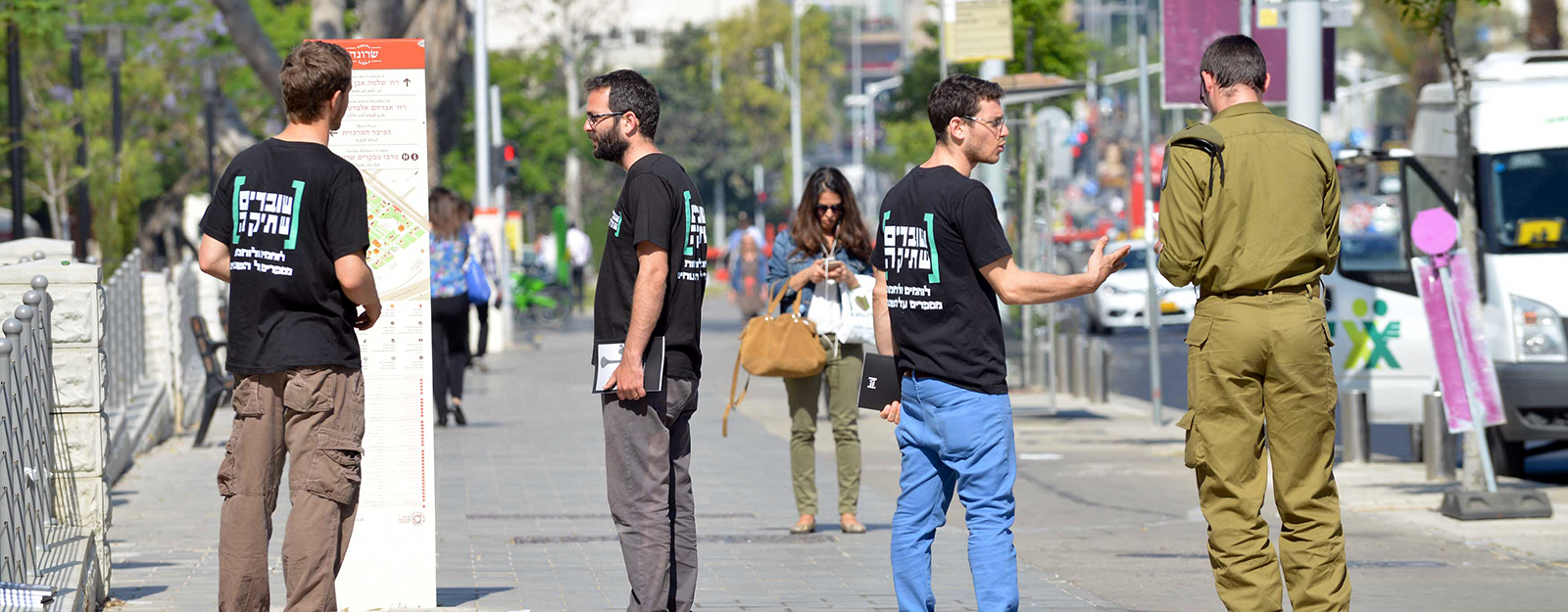There was a period there when we turned into the bad guys because during a very big riot that happened there, older people from Burin came up, not just the kids we’d get into fights with daily, and then masked [settlers] from [the outpost of] Givat Ronen ran down to pick a fight with them. We held the settlers off and one of them punched one of our soldiers in the face, we complained about him to the police.
In this case of the complaint that you filed, did you know who the assailant was?Yes.
Did you see him?Yes, yes. It all played out right in front of us.
And do you have any idea whether anything was done with it?In my estimation [it was] just the complaint, in my opinion nothing happened with it later. The soldier who took the punch and some commander went to give testimony at the Ariel police [station], but after that I don’t know what happened with it.
Is this conflict with the settlers something you wouldn’t usually do?For me personally, it was important for me to maintain a certain position with the people from Givat Ronen, that I’m here and you’re under my responsibility and the area and so on. But I was very tough in relation to any violent or aggressive attempt against my soldiers. Meaning I looked at them with a very very critical eye, specifically the settlers at Givat Ronen. In my interpersonal experience with Palestinians, there isn’t anything where I was insulted or angry at a Palestinian ever. By contrast, with the Jews, whom I was there to protect, there were very many instances of friction and things relating to swearing.
When settlers come down from Givat Ronen, what do these settlers do?Either come to throw stones at them (at Palestinians from Burin) or come pick a fight with them.
And what do you do about it?We kick the settlers out of there.
What authority do you have when it comes to the settlers?I have no idea.
You’re supposed to be the law in the area, aren’t you?Yes, yes.
So how does a representative of the law get threatened so brazenly?One of our soldiers was punched in the face, they left him with a black eye.They really threaten and physically hurt representatives of the law and you don’t actually do anything, how can that be?I think the brigade commanders in the Judea and Samaria Area are figures who really become part of the community. They ultimately determine the level of pressure that’s put on settlers there [according to] how much the brigade commander goes along with the settlers’ vibe, or how much he doesn’t go along with them. I think I was [there] at a time when, relatively speaking, there was this dynamic that tried to maintain the status quo, to not go head to head with them (with the settlers), but also didn’t go along with them too much. I think there just wasn’t anything official from the battalion or the brigade in relation to the settlers. I personally went once to someone in [the settlement of] Har Brakha, knocked on his door and told him, “Hello, I’m the deputy company commander here, I’m hearing from my soldiers that you’re threatening and badmouthing soldiers here, I’m asking you to stop it, otherwise you’ll have me to deal with.” And that was it, I never heard from him since.
In what situation did he threaten soldiers? Say a soldier is in a static post in Har Brakha, [he] comes and rants at him and swears at him, threatens him and all kinds of stuff like that.









 testimonies
testimonies  media & content
media & content 










 ONE OF OUR SOLDIERS WAS PUNCHED IN THE FACE
ONE OF OUR SOLDIERS WAS PUNCHED IN THE FACE 

 terms of use & privacy policy
terms of use & privacy policy